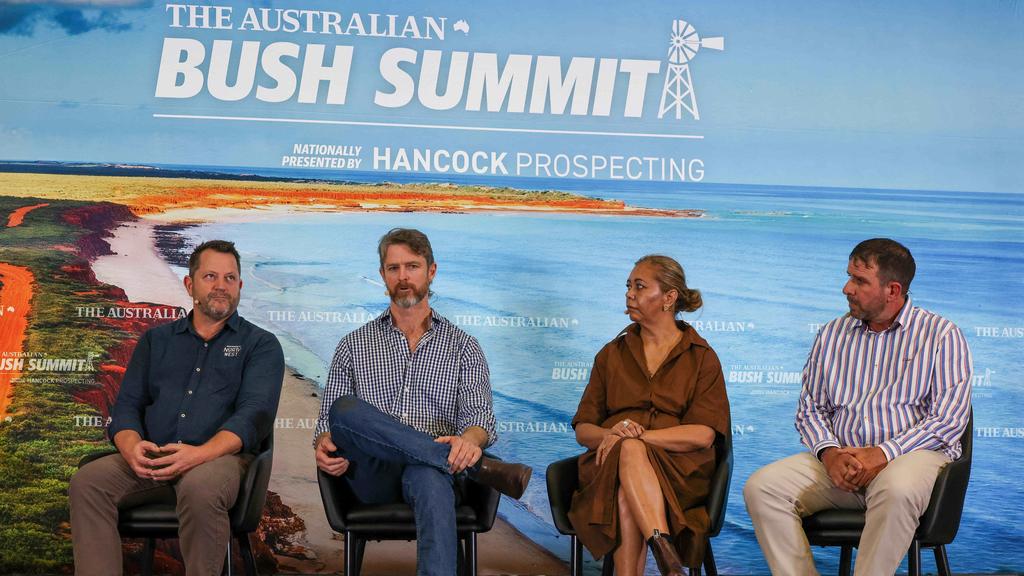
Article by Matthew Denholm, courtesy of The Australian
20.08.2025

Slashing payroll tax in remote areas and allowing foreign airlines to service poorly connected regional centres are among key reforms suggested at this year’s first Bush Summit.
The suggestions were made by regional business leaders at The Australian’s Bush Summit in Broome on Wednesday, with the Western Australian government expressing a willingness to consider the payroll tax push.
WA Agriculture, Food and Small Business Minister Jackie Jarvis told the summit she was open to considering the idea of discounted payroll tax rates in regional areas.
Ms Jarvis said the concept could be examined in the next regular review of payroll tax thresholds. “I’m sure that can be considered … when we look the thresholds into the future,” she said.
Among those supporting the concept at the summit was James Brown, managing director of Pearls of Australia, which includes the Kimberley’s Cygnet Bay Pearl Farm and NSW’s Broken Bay Pearl Farm.
“You talk about workforce development yet small, medium-sized businesses still have to pay payroll tax in the region, the same as in an urban environment,” Mr Brown said. “You don’t do that in Victoria.”
WA and other states could follow the lead of Victoria, where regional employers have paid a lower payroll tax rate since 2017.
To be eligible, employers must pay at least 85 per cent of wages to regional employees, who must perform more than half of their work in the regions.
Mr Brown also backed the idea of regional exemptions to aviation cabotage rules, which prevent foreign carriers from servicing domestic routes.
He said the concept was the kind of broad thinking needed to provide a boost to regional areas in the short term.
“Aviation is so critical to the north – you can have all the strategies around developing the north … but without aviation and linkages to our big centres or to Asia it’s not genuine,” Mr Brown said.
“Why can’t the conversation at least think big enough to consider openly the issue of cabotage and the problems it has in developing northern Australia?”
Bill Tatchell, chief executive of peak tourism body Australia’s North West, urged the WA government to develop aviation policies for regions plagued by poor service, high costs and dwindling routes.
Mr Tatchell said this could include a fund to attract new carriers, while describing cabotage as “frustrating” for locals having to watch planes fly overhead en route to Asia that were banned from servicing their community.
“You look at these flights flying overhead and you wonder ‘maybe, what if?, come on down’,” he said.
Northern Australia Infrastructure Facility director Vanessa Elliot, a Jaru woman from the Kimberley, said regional development needed to move beyond “proponent-led development”.
“(We need) to actually start building commercial corridors … in Namibia, South Africa, Canada and the Americas they work with more than 14 different indigenous groups to develop macro development,” Ms Elliot said.
“And they’ve moved to models of common-user infrastructure, rather than proponent-owned individual infrastructure.”
